As a Church of England school, different faiths, along with Christianity are an important part of the RE curriculum.
As a Church of England School, we affirm and value every member of our school community. We recognise each child and adult as unique and special to God and have a commitment and responsibility to provide opportunities for flourishing and the best possible education for our pupils within this caring Christian community.
Education at St. Mary’s reflects our distinctive Christian vision and character and makes a strong contribution to the pupils’ spiritual, moral, social and cultural development. It also reflects and promotes the school’s Christian values which encourage respect for all cultures and faiths and those of no faith. We wish to respond to the diverse range of gifts and abilities found within our community, so that each individual may be helped to flourish in confidence, knowledge and awareness. Excellence, enjoyment and high personal achievement will always be pursued.
The purpose of Religious Education is to enable pupils to become religiously literate; to have the ability to hold balanced and informed conversations about religions and beliefs. Spirituality is supported and encouraged in all our children and promoted across the curriculum. Along with daily collective worship, RE provides space for children to reflect on their own ideas and develop their thoughts about questions of meaning and ethics.
As a Church of England school, different faiths, along with Christianity are an important part of our RE curriculum, which is designed with the Barnet Agreed Syllabus in mind.
Through learning, debate and questioning, along with gaining knowledge and understanding, children are being equipped to handle issues in their lives, and preparing them the next steps in their lives and for the workplace and adult life.
Throughout the school, an enquiry approach is used to teach Religious Education using The Emmanuel Project and Understanding Christianity frameworks for the children’s learning.
Click to see our RE learning across the year for all classes in our 2024 25 RE Curriculum Map. Click to read our Religious Education Policy
We work closely with Rev. Alec Corio who often supports the children’s RE learning in school or at church:
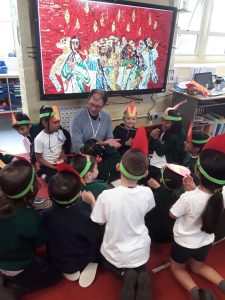
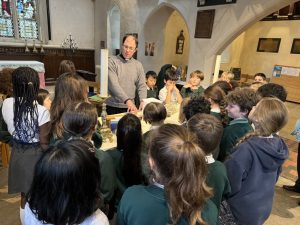
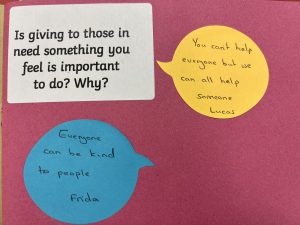
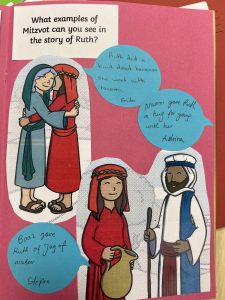
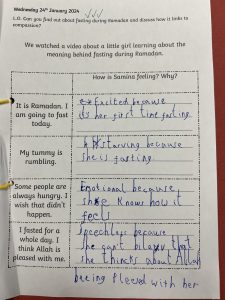
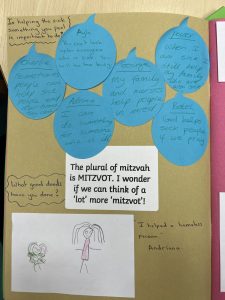
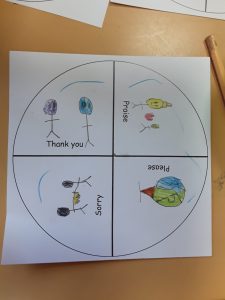
In June 2024, Miss Caroline Goringe was nominated for a Religious Education Award and she won! Mrs Constantinou serves on the Barnet SACRE (Standing Advisory Council for Religious Education) board and put Miss Goringe forward for her creative and innovative approach to teaching RE at St. Mary’s. Here are a few words from the nomination:
Miss Goringe approaches RE teaching with great care, sensitivity and consideration. She creates an environment within which children can safely but bravely engage, enquire, explore, reflect and connect with questions about faith and religious practices. The children’s outcomes in her RE lessons are excellent.
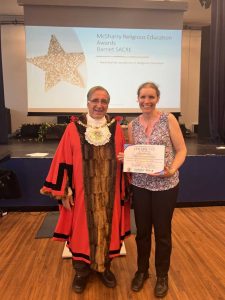
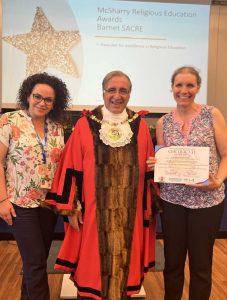
Miss Goringe was awarded by the Mayor of Barnet, Cllr. Tony Vourou, who was very complimentary and thanked Miss Goringe for her service and hard work.
St Albans Diocese Schools Page